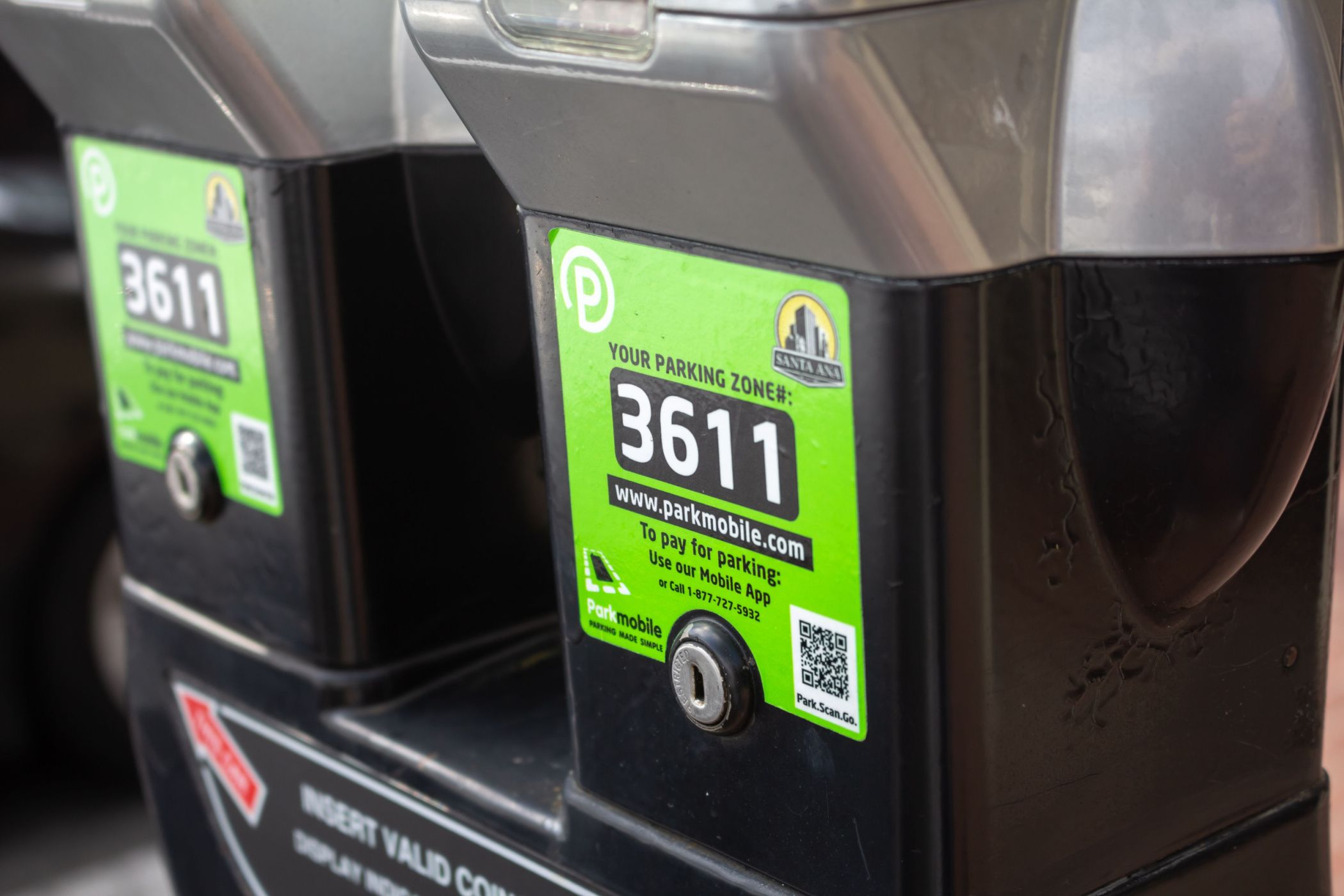It turns out that parking meter QR codes aren't just convenient for all of us looking to quickly pay for our parking spot, but also for scammers looking to lift your credit card data. Here's what you need to know.
What's the QR Code Parking Meter Scam?
If you're not the kind of person who goes around thinking of ways to rip off your fellow human beings (and thankfully the vast majority of us fall into the not-scammer category) you may find yourself frequently surprised by the simplicity of scams when they are explained to you. In the case of the QR code parking meter not only is the scam very simple to execute, but it's placed in an area where most people typically wouldn't have their guard up.
The scam relies on people's familiarity with pay-at-the-meter digital parking payment methods like the popular ParkMobile application. The scammers place their own QR codes on the meters, either pasting over the existing parking meter codes or placing their stickers on meters that never had digital payment methods to begin with.
Then, when you, the unwary motorist, scan the QR code on the meter you are directed to an alternative payment portal set up by the scammer to skim your financial data. Sometimes the scammer's payment portal is set up to look exactly like the city's payment portal or that of popular parking payment apps. Other times it is simply designed to look like a very believable parking payment platform with its own unique name like SuperPark&Pay.
Typically, the scammers charge you a small and reasonable amount at that time, so it looks like you actually paid for your parking that day. Then, weeks later, you'll see unknown charges pop up on the card you used as the scammers use your payment data to purchase gift cards or otherwise misuse your credit card.
From the Isle of Wight to the city of Atlanta, the scam is popping up all over the place. Some scammers have even taken it to the next level by issuing parking tickets with fraudulent QR codes on them---though that's a much riskier undertaking as it requires the scammer to continually patrol an area and leave the fake parking tickets on the cars. Still, it's a variation of the scam worth being aware of.
How Do I Avoid the QR Code Parking Meter Scam?
Fortunately, it's really easy to avoid the QR parking meter scam once you're aware of the scam in the first place.
Use alternative payments. When in doubt, use an alternative mode of payment. Coins are scam proof and if the meter has a card reader built in you can pay directly at the meter.
While, yes, there is a whole separate scam out there where scammers attach credit card skimmer to payment terminals, that's not a big concern for parking meters. Such skimmers are usually placed on gas station pumps or ATMs where there are both a high volume of traffic and more data shared at the payment terminal.
Use a parking payment app. It's unusual to find a parking meter with just a QR code and no other information. If it's just a naked QR code, it's best not to use it. If it's a QR code and additional information like the name of the parking app and an identifier for the parking spot, go ahead and manually download the app from the app store on your phone (or open it if you already have it) and then manually input the parking spot identifier.
For example, the photo at the top of this article shows a parking meter in Santa Ana, California with the payment is handled by ParkMobile. A scammer could compromise that parking spot by sticking their own QR code over the official ParkMobile sticker, but you could defeat it by opening up the ParkMobile app and entering the ID for the parking spot.
Manually visit the parking payment page. This tip will certainly sound familiar if you've ever read any advice on avoiding email and text message scams: when in doubt always manually enter the address for a business or organization.
If your city doesn't farm out the parking payment to a third-party service like ParkMobile, visit the page directly using your phone's mobile browser instead of the scanning the QR code on the meter to access to the same page. You may have to spend an extra moment plugging in the meter ID, but you'll avoid getting passed along to a scammer's payment portal.
Look for evidence the meter has been tampered with. There may be evidence the original sticker has been hastily peeled off and replaced with the scammer's sticker. You may also notice that the QR code has been stuck directly over the old QR code, either because it's misaligned or the sticker material is different.
If you see any evidence that the QR code isn't original, use the payment methods outlined above like paying at the meter or using the parking app directly.
Report suspicious QR codes and labels to the city. This last suggestion doesn't protect you from the scam, but it does protect everyone that comes after you. If you see a meter with labeling that seems out of place, unfamiliar, or with a QR code that stands out oddly, take a quick minute to call parking services for your city or town to report it.
Government agencies might seem to move glacially most of the time, but you'd be surprised how responsive they can be when they find out somebody is brazenly stealing a slice of their revenue pie.
All our tips aside, the best defense against QR code scams is the same as any other scam: awareness. Now that you know to regard the QR codes and signage on a parking meter with a healthy dose of suspicion, the chance that you'll fall prey to this increasingly common scam is much lower.

